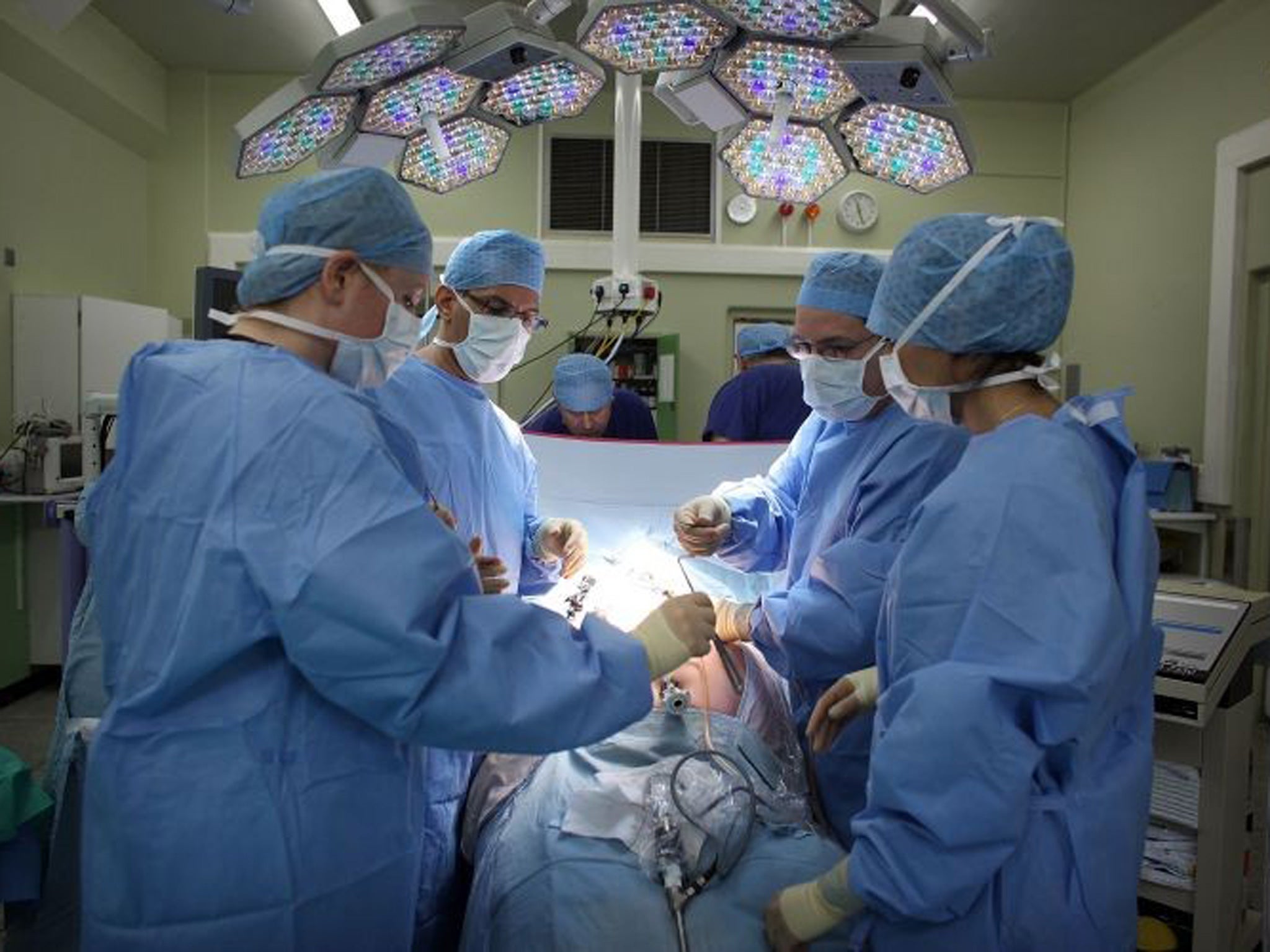Death more likely after a weekend operation: Weekly dip in recovery rates worldwide proves need for a ‘seven-day NHS
Global study involving 55m patients reveals deaths significantly more likely following Saturday surgery

Sick? In need of an operation? Then keep your fingers crossed that your consultant doesn’t schedule your procedure for a weekend afternoon – especially one in February. Patients are up to 17 per cent more likely to die if they are admitted at the weekend, an unprecedented global study has revealed.
As the NHS prepares to enter an era of seven-day working, data from 72 different research projects covering more than 55 million patients found that the “weekend effect” is international. Researchers from Tohoku University, Japan, who analysed worldwide hospital death rates, said the most likely explanation for the results was poorer quality care at weekends.
Their findings, to be presented today at a meeting of leading European anaesthesia specialists in Stockholm, are supported by another study which discovered similar concerns about mortality levels at Berlin’s hospitals. Researchers at the Charité medical school found death rates can be affected by not only the day of the week, but the time of year and even whether surgery is carried out in the morning or the afternoon. The findings, based on an analysis of nearly 220,000 patients treated at two of the university’s hospitals between 2006 and 2011, show that mortality was higher in the afternoons, at weekends, and peaked in February.
Dr Felix Kork of Charité said the precise causes are unknown. “It is speculation, but in the afternoon it may be that the surgeries are more likely to be urgent than in the morning, although we tried to control for that factor. It may also be that the human immune system reacts differently at different times of the day, but there is not a lot of data supporting that theory. February is usually a time when many people are ill due to viral infections – that may have an influence on the outcomes.”
He also suggested that seasonal hormonal rhythms, for instance of the “sleep hormone” melatonin, might be affecting the performance of staff and surgical responses of patients in February, but said this theory was “speculative”.
NHS England has already acknowledged that hospital care suffers at the weekends, and plans are in train to ensure more senior doctors are available to prevent problems and complications escalating into life-threatening situations. Plans for a “seven-day NHS” are also in place in Scotland and Wales.
Last year, a study in the British Medical Journal provided evidence to support long-standing fears that surgery in the NHS was more dangerous at the weekend. The study, led by Dr Paul Aylin of the Dr Foster Unit, the Imperial College research team which has pioneered the publication of hospitals’ surgical outcomes data, revealed that patients who had an operation on Friday or Saturday were 44 per cent or 82 per cent more likely to die within 30 days than those who had surgery on a Monday.
It also showed the risks of surgery became progressively higher from Monday to Saturday, although only 4.5 per cent of elective procedures are carried out at weekends, and the average mortality risk for such procedures is low – 0.67 per cent. Evidence has also shown patients admitted to NHS hospitals at the weekend, not necessarily for surgery, also have a higher mortality risk.
Commenting on the new studies, Dr Aylin said they added up to “powerful” evidence of a global problem in healthcare. “The German study is interesting in raising afternoon surgery as an issue, but as the authors acknowledge, it may be that ‘the patients treated in the afternoon and on the weekends were more severely ill’,” he said.
“The Japanese study is powerful in that it combines the results of 72 studies from around the world …. Both studies acknowledge the differences could reflect poorer care or simply that patients admitted at these times were more severely ill. More research is needed to find out exactly what contributes to higher mortality at weekends. Is it lack of clinical staff, nursing staff, diagnostic services, other hospital resources?”
NHS England has decided that the numbers and degree of seniority of staff at weekends is to blame. Reforms announced by NHS England’s medical director, Sir Bruce Keogh, at the end of last year could see more consultants, and many other NHS staff, made available at weekends. However, the plans could cost between £1bn and £2bn, and many in the health service have raised concerns that this may be unaffordable, given the huge financial pressure already faced by NHS trusts.
Subscribe to Independent Premium to bookmark this article
Want to bookmark your favourite articles and stories to read or reference later? Start your Independent Premium subscription today.

Join our commenting forum
Join thought-provoking conversations, follow other Independent readers and see their replies